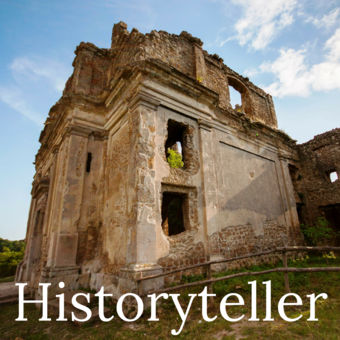
Historyteller
Ahsan Irfan
Historyteller is semi-monthly podcast that focuses on weaving true tales from ancient sources with contemporary archaeological data to give a true historical storytelling experience. Current: The History of Carthage
- Episode 1.14 – The Death of Motya
Motya was going to die. And Motya knew it. In the intense heat of the summer of 397, the Motyans stood behind their defensive walls, which they had just fortified using the stones from the ruins of an ancient temple nearby. And they had also taken the bold decision of backing themselves into a corner, …
Continue reading Episode 1.14 – The Death of Motya
 17 October 2018, 1:00 pm
17 October 2018, 1:00 pm - Episode 1.13 – Enter Dionysius – Part II – The Battle of Gela
Gela was a Doric city, founded in 688 BC by Greeks from the islands of Rhodes and Crete. It was the metropolis of Acragas. She was built on a long low hill, running parallel to the South Eastern coast of Sicily. She took her name from the river that ran to her east, which flowed, …
Continue reading Episode 1.13 – Enter Dionysius – Part II – The Battle of Gela
 4 September 2018, 4:37 am
4 September 2018, 4:37 am - Episode 1.12 – Enter Dionysius – Part I – The Fall of Acragas
During the 415 - 413 BC Athenian invasion of Sicily, a Syracusan aristocrat named Hermocrates had become the hero of the day, by uniting all the Sicilian Greeks against the Athenians. He was then sent as a naval commander to the Peloponnese to help the Spartans out against the Athenians there. But victory in this …
Continue reading Episode 1.12 – Enter Dionysius – Part I – The Fall of Acragas
 16 August 2018, 6:00 am
16 August 2018, 6:00 am - Episode 1.11 – Revenge of the Magonids
With ten episodes on Carthaginian history under our collective belts, we have come to a close on what we can call the “early history” of Carthage. From this episode, that is Episode 1.11, onwards, we will open up a new chapter. For the next little while, maybe five to ten episodes, we will cover a …
Continue reading Episode 1.11 – Revenge of the Magonids
 1 August 2018, 1:00 pm
1 August 2018, 1:00 pm - Episode 1.10 – The Punic Empire
Last time, we had taken a look at how after the Battle of Himera, Carthage went through what was probably a voluntary program of austerity which correlated directly with her acquisition of the Western Mediterranean metals trade. We had seen how Carthage began with the silver and tin trade in Iberia and Europe and extended …
Continue reading Episode 1.10 – The Punic Empire
 1 July 2018, 7:00 am
1 July 2018, 7:00 am - Episode 1.9 – Atlantic Adventures
In the last episode, we had looked a crucial battle in the history of Carthage, that of Himera. We examined the long chain of causes that lead to the conflict and studied its aftermath. Towards the end of the episode, I had pointed out that the effect of the Battle of Himera was such that …
Continue reading Episode 1.9 – Atlantic Adventures
 16 June 2018, 7:00 am
16 June 2018, 7:00 am - Episode 1.8 – The Battle of Himera
In the last episode, we began looking at Carthage's interactions with other civilizations active in the Mediterranean during the sixth century BC. We looked at her interactions with the Greeks, the Etruscans and the, as of yet nascent, Romans. The last episode was a patchwork of different events that took us from the 540s BC …
Continue reading Episode 1.8 – The Battle of Himera
 1 June 2018, 2:00 pm
1 June 2018, 2:00 pm - Episode 1.7 – Carthage & the Mediterranean
In the last episode, we took a look at Carthage's early kings. We examined the stories of the first four kings of the city. We used the four kings as anchors with which to ground our discussion on Carthage’s early politics. Apart from the politics, the one other thing that we observe during this time …
Continue reading Episode 1.7 – Carthage & the Mediterranean
 16 May 2018, 2:00 pm
16 May 2018, 2:00 pm - Episode 1.6 – The Early Kings
In the last episode, we examined the three Carthaginian founding myths that the Greco-Roman literature describes. We looked at the legend of Elissa and examined her misfortunes and contrivances in detail. We saw how she escaped the clutches of her brother and, after a short stay in Cyprus, landed at Utica and founded the city …
Continue reading Episode 1.6 – The Early Kings
 1 May 2018, 2:00 pm
1 May 2018, 2:00 pm - Episode 1.5 – The Founding of Carthage
In the previous episodes, I've summarized as briefly as I could the history of Tyre's colonization of the Mediterranean, and the circumstances that led to that migration. We've seen how Tyre's lust for wealth made her plant small trading stations all over the Mediterranean, and how the expansion of Assyrian hegemony in the Levant caused …
Continue reading Episode 1.5 – The Founding of Carthage
 1 April 2018, 2:00 pm
1 April 2018, 2:00 pm - Episode 1.4 – Cooperation & Conflict
By the middle of the eighth century BC, the Tyrians were all over the Mediterranean. Under Hiram I, they had begun developing an extensive trading network that connected various Mediterranean regions. They traded in precious metals like gold, silver, tin, and lead and also dealt in ivory, wine, olive oil, and, of course, the famous …
Continue reading Episode 1.4 – Cooperation & Conflict
 16 March 2018, 2:00 pm
16 March 2018, 2:00 pm - More Episodes? Get the App
Your feedback is valuable to us. Should you encounter any bugs, glitches, lack of functionality or other problems, please email us on [email protected] or join Moon.FM Telegram Group where you can talk directly to the dev team who are happy to answer any queries.
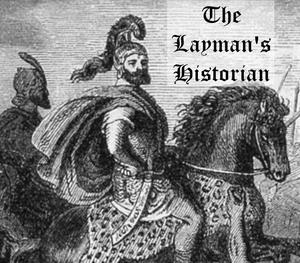 The Layman's Historian
The Layman's Historian
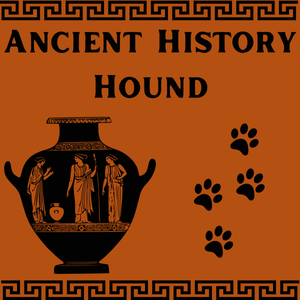 Ancient History Hound
Ancient History Hound
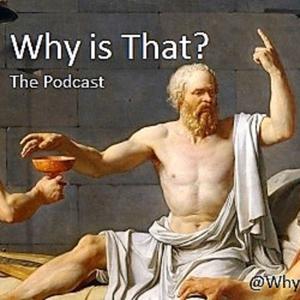 Why Is That Podcast
Why Is That Podcast
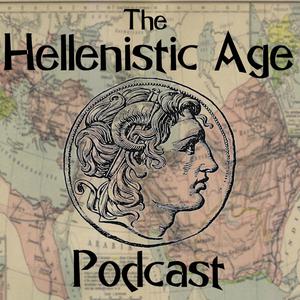 The Hellenistic Age Podcast
The Hellenistic Age Podcast